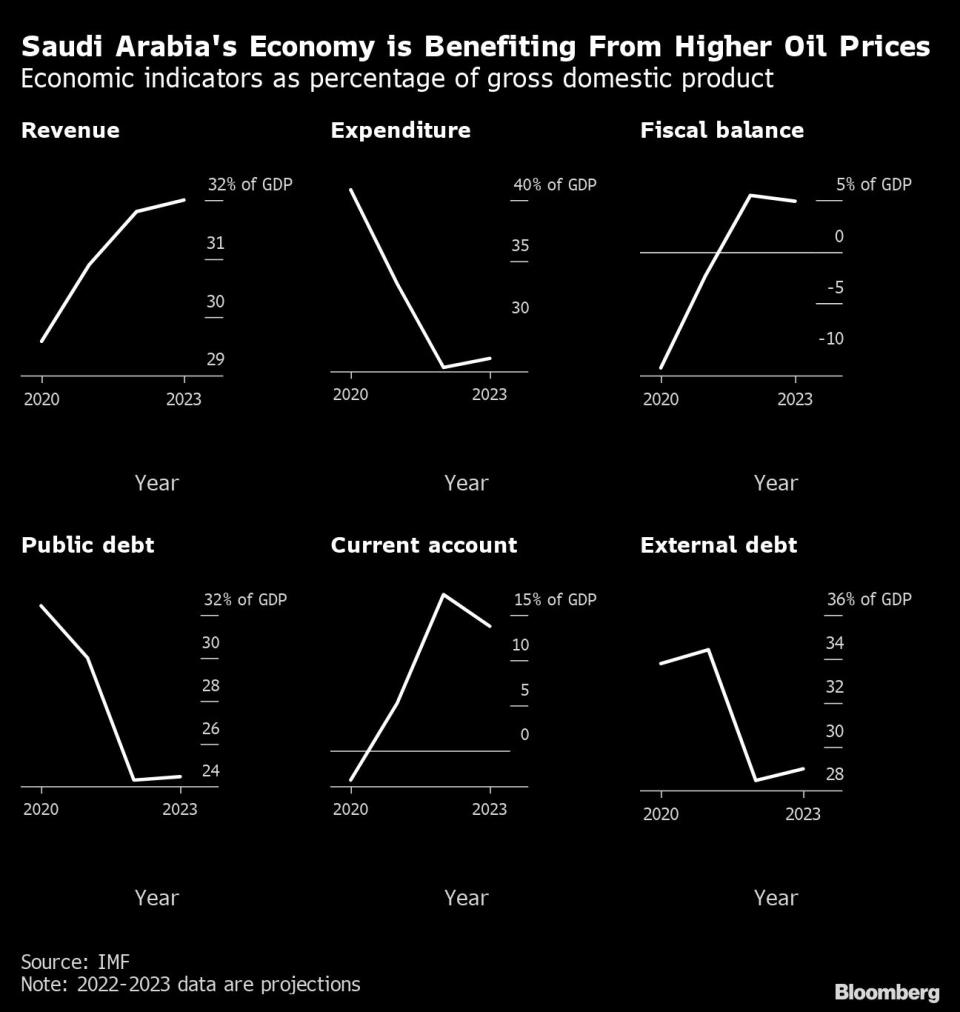Saudi Arabia Should Lift Cap on Domestic Fuel Prices, IMF Says
(Bloomberg) -- Sign up for our Middle East newsletter and follow us @middleeast for news on the region.
Saudi Arabia should resume letting domestic energy prices rise as part of efforts to reduce consumption and help in hitting reduction targets for emissions, according to the International Monetary Fund.
The world’s biggest crude exporter set an upper limit for the domestic cost of gasoline to soften the impact of higher living costs on citizens last year, just a month before announcing a plan to hit net zero carbon emissions by 2060.
“There is a lot of efficiency that can be gained by removing the existing subsidies,” Amine Mati, the IMF’s mission chief to the kingdom, said in an interview. Saudi Arabia is in a “good position to step up further the energy-price increase which goes in line with the green initiative and the idea of reducing emissions.”
The IMF advice comes as governments around the world are taking steps to contain inflation caused by higher fuel prices and grain shortages. While soaring crude has created problems for energy importers, Saudi Arabia’s economy is set to grow at the fastest pace in a decade, according to the IMF, thanks to oil’s rise and loosening business restrictions under a diversification plan known as Vision 2030.
Saudi Arabia should continue to focus on targeted social support to help maintain energy price reforms, the IMF said.
Local gasoline prices are among the lowest in the world -- around two-thirds that in the US, but they’ve risen since 2015, when the subsidy reform was introduced to promote more efficient consumption and help plug a budget deficit brought on by plunging oil prices.
Today, some Saudis believe that increasing oil prices should actually lead to lower costs at the gas pump because of the boost they provide to government finances. The IMF envisages a budget surplus of 5.5% of gross domestic product this year.
Read: Oil Bounty Sends Saudi Arabian Budget Surplus to $21 Billion
Saudi Arabia’s economy is expected to grow 7.6%, according to the IMF’s latest projections published on Wednesday, consistent with a previous estimate in April. Inflation is now expected to reach 2.8% by the end of the year, slightly higher than the fund’s earlier forecast of 2.5%.
“Right now, we think that the 2.8% projection is likely going to be an upper bound,” said Mati, “we don’t really expect inflation to be higher than that on average for 2022.”
Unemployment among nationals is seen dropping to just over 10% this year, from 11% in 2021, according to the IMF’s report.
Earlier this year, Saudi officials said the government will hold billions of dollars from its expected oil windfall in a government current account and only decide how to distribute the money by the end of the fiscal year. The move is an attempt to try and avoid the boom and bust cycles that followed previous periods of high oil prices.
The government’s new approach to dealing with its surplus is a step “in the right direction,” said Mati. “Policy makers have learned from what has happened in the past and I think they are cautious of that going forward.”
More stories like this are available on bloomberg.com
©2022 Bloomberg L.P.

 Yahoo Finance
Yahoo Finance 


